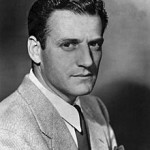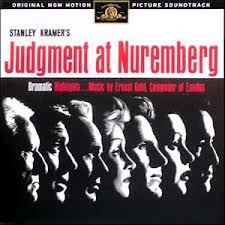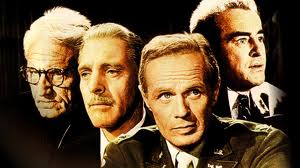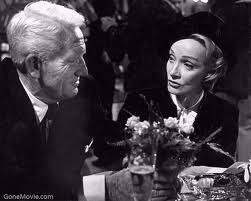It is a year today that Ichigo, the blog master of this site, passed away. We have translated and posted a little under half of her blog entries here on the English site. The following entry, which she wrote on her final New Year’s, represents her well. We will continue to translate and post the many other movies she wrote about.
Ichigo’s family
I started writing this blog on August 27, 2012. My motive for starting this blog was that I knew it was a blessing to still be alive after recovering from a life-threatening illness, and I wanted to express my current thoughts by weaving a tapestry of movies and people, using the history of a nation through time as the vertical threads and the interactions between nations within a time period as the horizontal threads. I chose movies as my medium because a movie, unlike a novel, must show something concrete to the audience, and therefore it is rich in information in many ways. Also, making a movie requires teamwork, which forces many people to interact with each other, and since you need money to make a movie, you need to persuade others of the value of the product; the process of making a movie alone is a human drama. To say it briefly, while writing literature can be done with one person’s mind, I think in order to make a movie, many people have to physically work together, and this results in an abundance of information.
I choose what movies to watch based on what I feel like watching that day, not “because it is a new release.” Therefore, the movies I have written about span nearly 90 years, from Battleship Potemkin in 1925 to Lincoln in 2012. Through these movies, 35 countries are depicted. I have blogged about nearly 100 movies here; I have watched about 30 more this year that I didn’t blog about. I can say that all of the movies I have posted on this blog had a strong impact on me, one way or another. The following movies are my personal Top 5 among the movies I watched in 2012.
1. The Unbearable Lightness of Being (1988)
 I admire Philip Kaufman’s discerning eye for discovering still-anonymous Daniel Day-Lewis and Juliette Binoche for leading roles in this movie. This movie is not flashy, but, using Day-Lewis’s and Binoche’s enchanting charms, it depicts the importance of respecting your feelings without being influenced by the times. It also depicts that wishing happiness for the person you are instinctively attracted to (including physically) will naturally lead to your own happiness; if this actually happens, this is true love. I remember reading on someone’s blog, “Generally I do not like love stories, but I really like this movie.” I understand how he feels.
I admire Philip Kaufman’s discerning eye for discovering still-anonymous Daniel Day-Lewis and Juliette Binoche for leading roles in this movie. This movie is not flashy, but, using Day-Lewis’s and Binoche’s enchanting charms, it depicts the importance of respecting your feelings without being influenced by the times. It also depicts that wishing happiness for the person you are instinctively attracted to (including physically) will naturally lead to your own happiness; if this actually happens, this is true love. I remember reading on someone’s blog, “Generally I do not like love stories, but I really like this movie.” I understand how he feels.
2. Lincoln (2012)
 There are two types of movies among Steven Spielberg’s movies: well-constructed entertaining movies, and serious movies where he wants to show that he is “not just an entertaining artist”—such as Schindler’s List, Munich, and War Horse. But Lincoln does not seem to fall under either category. To say it briefly, all of Spielberg’s works have either been financially successful or received high acclaim among critics, he has gained respect among his peers in the movie industry, and he never has to worry about financing his movies; therefore, Steven Spielberg, who no longer has anything to fear, can now make movies about whatever theme truly interests him, without any worries. What was the theme he wanted to make most? To speak honestly, I think this movie is a tribute to President Obama. To be more precise, it is paying respect to the citizens of America—a mixed nation where there has always been a serious political divide—for choosing President Obama in an election, and for both supporting and rigorously criticizing him.
There are two types of movies among Steven Spielberg’s movies: well-constructed entertaining movies, and serious movies where he wants to show that he is “not just an entertaining artist”—such as Schindler’s List, Munich, and War Horse. But Lincoln does not seem to fall under either category. To say it briefly, all of Spielberg’s works have either been financially successful or received high acclaim among critics, he has gained respect among his peers in the movie industry, and he never has to worry about financing his movies; therefore, Steven Spielberg, who no longer has anything to fear, can now make movies about whatever theme truly interests him, without any worries. What was the theme he wanted to make most? To speak honestly, I think this movie is a tribute to President Obama. To be more precise, it is paying respect to the citizens of America—a mixed nation where there has always been a serious political divide—for choosing President Obama in an election, and for both supporting and rigorously criticizing him.
Among Americans—who often have divided opinions—Lincoln and the first president, Washington, are among the few presidents who are undisputedly considered great presidents; similarities between President Obama and President Lincoln are already being pointed out. For example, both are elected presidents from Illinois in the Midwest, which is thought of as the heart of America; both were little known, not having held a powerful position as a politician, before becoming a president. Both have made excellent speeches that will remain in history, and both had to make difficult decisions one after another when the nation was badly divided.
In my blog about the movie Lincoln, I wrote “I still believe that Lincoln fixed his eyes on the ultimate goal and took steps and the right method most appropriate for the time.” Likewise, I recently read an interview with President Obama about the movie Lincoln, where he said something along the lines of, “I will not comment on the value of any of the past presidents, but what was captivating about this movie was the way it depicted a politician’s dreams and realistic methods. A politician at times, in order to reach his ideal goal, has to compromise.” I agree with what he said. Obama and Lincoln’s major common characteristic is their utilization of wise and pragmatic methods, while having their eyes fixed on the ultimate goal. I think they both understand that after all, having an ideal goal is most important. Also, many Americans genuinely believe Obama’s good personality is his natural personality instead of a constructed one, similar to how people felt about Lincoln in his days. Of course, First Lady Michelle Obama—who is pragmatic, down-to-earth, doesn’t worry about little details, and isn’t vain—is also contributing to the president’s popularity.
In this movie, Lincoln was played by Daniel Day-Lewis, whose performance was awe-inspiring. It is said that Steven Spielberg came to the studio wearing a suit and tie every day during filming because he was meeting with the President. Also, when I watched the movie in theaters, I saw quite a few dressed-up parents with their children in the theater, and when the movie was over, the audience did not leave immediately. Instead, there was big applause as if they just listened to a speech by a real president.
3. Katyń (2007)
The value of this movie is simply the quantity and quality of information it delivers. We can feel the director Andrzej Wajda’s resolution that he could not die until he made this movie and told this story.
4. A Separation (2011)
 Asghar Farhadi produced, directed, and wrote the screenplay for this exemplary movie with a tightly constructed storyline. Also, the movie is informative about the life of the middle class in Iran. Iranians—who value education highly and pride themselves on their refined culture—currently haven’t reached their full potential under a religious regime, but if Iran becomes a democratic nation, I think Iran will be truly incredible.
Asghar Farhadi produced, directed, and wrote the screenplay for this exemplary movie with a tightly constructed storyline. Also, the movie is informative about the life of the middle class in Iran. Iranians—who value education highly and pride themselves on their refined culture—currently haven’t reached their full potential under a religious regime, but if Iran becomes a democratic nation, I think Iran will be truly incredible.
 5. Judgment at Nuremberg (1961)
5. Judgment at Nuremberg (1961)
This movie is a timeless masterpiece by maestro Stanley Kramer, who is known for producing High Noon and directing Guess Who’s Coming to Dinner. There is nothing flashy or preachy; the movie depicts the political situation in Europe and the U.S. after World War II very well, and suggests the beginning of the imminent Cold War. The movie doesn’t feel old even when we watch it today. I think Spencer Tracy, like Daniel Day-Lewis, is one of the greatest actors of our time. I should not forget to mention Z for being a movie with a similar appeal.
I wish you a Happy New Year.





